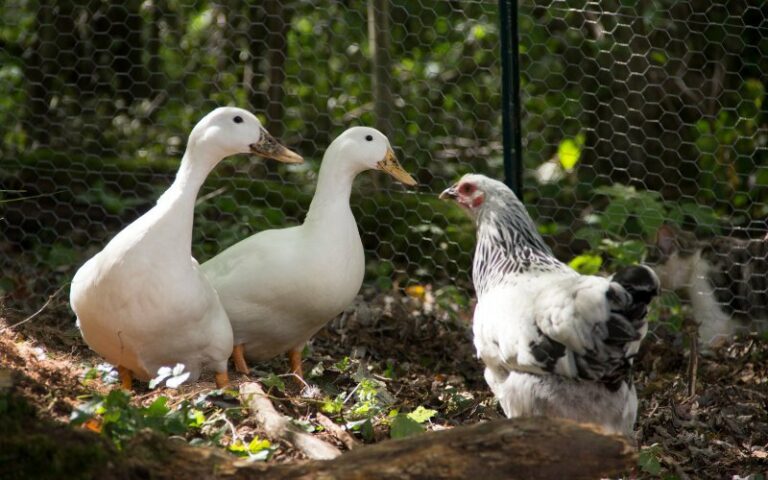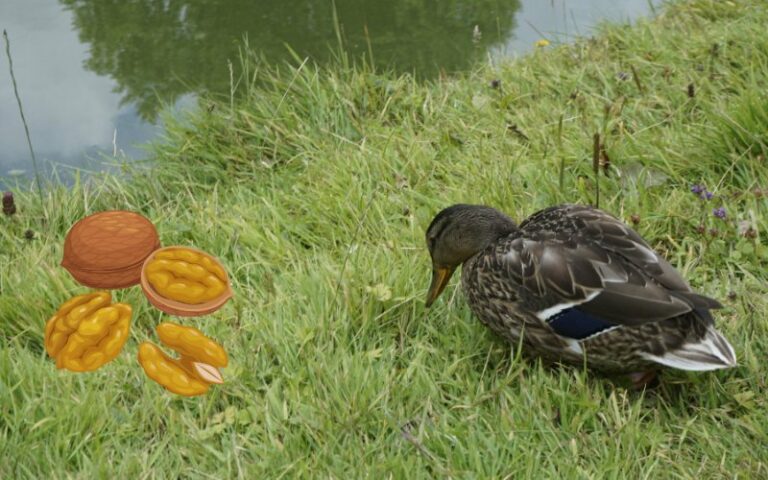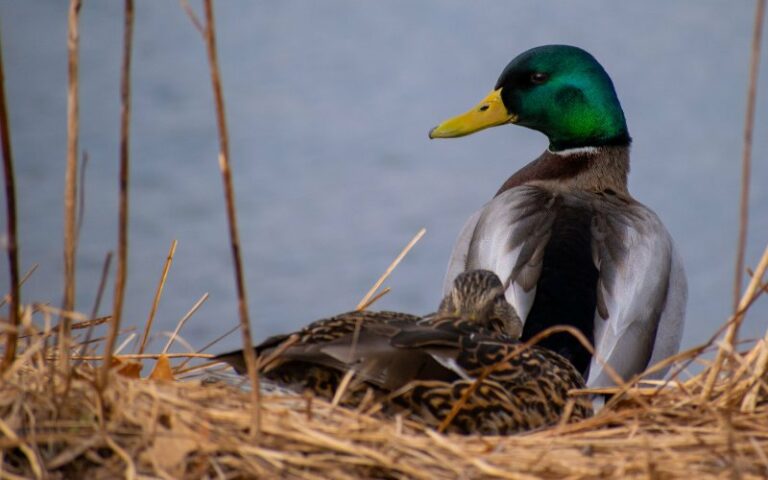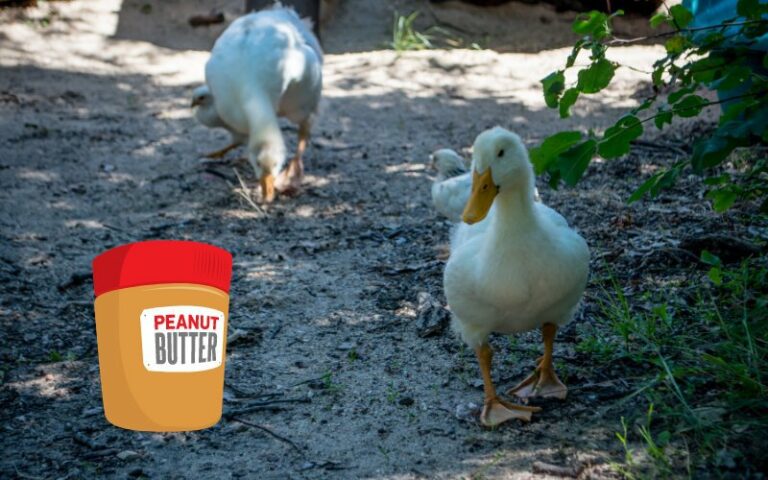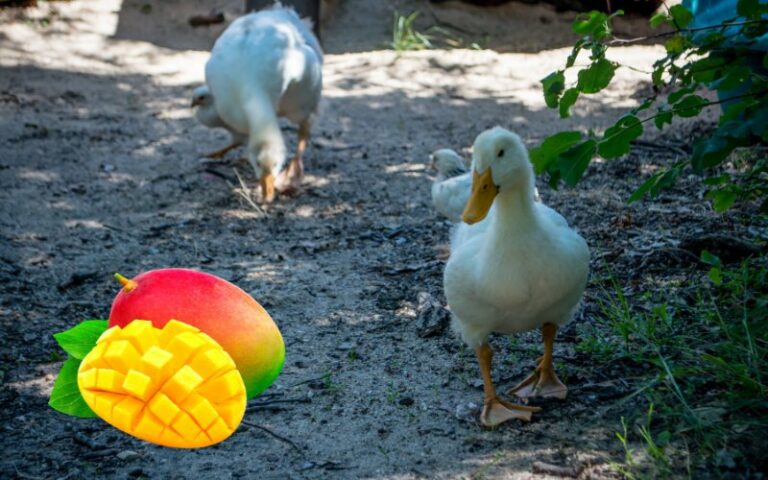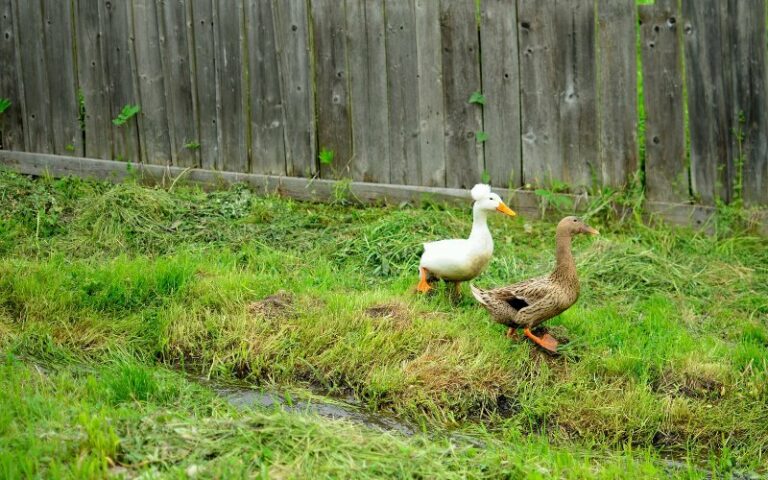Why is My Duck Panting? (+ What to Do)
“My duck is panting- should I be worried?” While ducks do pant when they’re hot or stressed, similar to dogs, ducks don’t do it as readily. This can mean that it takes more heat or stress to get a duck to pant, and may mean that the situation can quickly escalate from panting as a warning sign to panting as an immediate concern. Below you can learn what causes a duck to pant and what you should do about it.
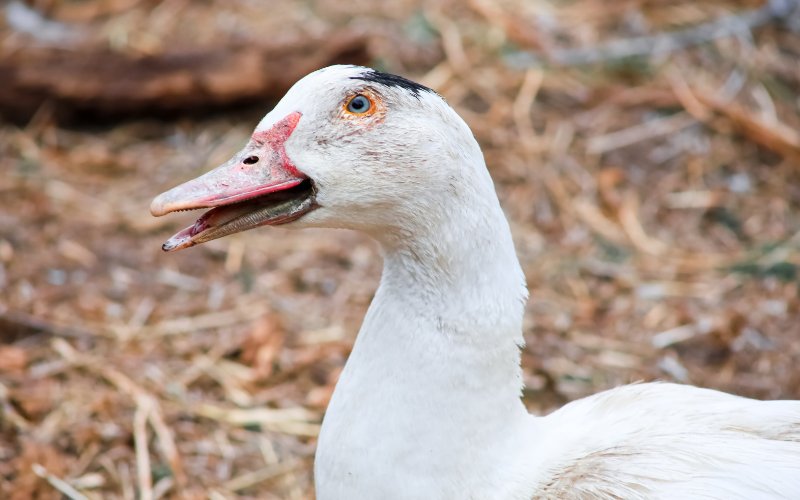
Common Causes of Ducks Panting (The Short Explanation)
If you see a duck panting, it’s for one of 3 reasons: heat, stress, or pain. None of these causes should be overlooked in domestic ducks. Any of them could cause severe damage or even death if not taken care of. This care can be setting up a sprinkler (heat) or a trip to the vet (pain).
Duck Panting With Mouth Open (3 Possible Reasons Why)
If you see a duck or duckling panting, one of three things is going on. That panting duck is in pain, overheating, or it is incredibly stressed. It could even be a combination of these things. These causes are broken down a bit more below.
Panting Caused by Overheating
Panting is most frequently caused by overheating. Just like a dog would, a duck will pant to cool off a little bit. If the duck is panting with its mouth open wide, this is likely what is happening.
If all of your ducks are panting and they have other ways to cool off available, such as shade or a swimming pool, this may not be cause for alarm. If, however, only a single duck or a small group of ducklings are panting, this may be a sign of illness.
For example, if a single duck is sitting alone and panting with drooping wings, this duck likely has heat exhaustion that may progress into another heat illness if they are not cooled off. This also applies to ducklings.
Further, ducklings that pant and have “chest heaving” or that look like they are struggling to breathe are likely suffering from a respiratory illness.
Panting Caused By Stress
Ducks also pant when they are stressed, even if it is relatively cool. This is most often something you would observe inside the coop if one of the ducks has been singled out or bullied. It can also be something a mother duck will do while sitting on her nest, especially if she feels that she doesn’t have enough space.
Panting Caused by Pain
In addition to stress and trying to cool down, a duck may pant when it is in pain. This can be anything from food stuck in its throat, to a cut on the web of its foot, or a respiratory infection. If you have eliminated all other causes, or if you have another reason to suspect that your duck is not well, it should be taken to a veterinarian that works with ducks.
What To Do If You Find Your Ducks Panting
Now that you’re familiar with the big causes, it’s important to know how to quickly narrow down what is causing your duck to pant.
First, Narrow Down the Cause – Observe Your Duck (or Ducks) and Their Surroundings
Below are some questions that I would ask as soon as I noticed a duck or flock panting.
- Is It Too Hot? – This is the first and often the easiest question to answer. If the answer is “yes” it should be followed up by “Can the ducks cool off in other ways?”. If they are already in the shade and have a small pool or sprinkler available, they are most likely fine as long as all or most of them are exhibiting the same behavior.
- Can Your Duck Move? – Beyond the overall temperature, it’s important to ensure that your ducks aren’t suffering from heat exhaustion. As long as they appear energetic, with wings pinned in their natural position, and they can still stand or move to a shady spot, they are likely to be fine.
- Does the Duck Seem Disoriented? – In addition to its general ability to move, a single duck may be wandering away from the group, tilting when it walks or walking in circles. This can be a sign of a serious heat-related illness (like heat stroke) and the duck should be slowly cooled down as quickly as possible.
- Does Your Duck Struggle When Being Handled? – Most ducks are calm when handled or picked up. If your duck struggles and it doesn’t usually, it may be injured or ill and should be thoroughly examined to see what is out of the ordinary. A visual and tactile check should include checking the webs and bottoms of the feet for injury as well as feeling for unusual lumps on the skin and ensuring that the crop is not hard or inflamed.
- Has Your Duck Vomited? – Vomiting isn’t unusual in ducks. Often it means they ate too fast, their crop is full, they were recently handled, or they took in too much water while swimming. However, if a duck vomits as soon as it tries to eat, several times in a row, and it pants when other ducks do not, it may have a problem with its throat or crop.
- Does Your Duck Have Any Obvious Wounds? – While not the question most people follow up “Why is my duck panting?” with, this is an important diagnostic question, especially if it’s not too hot. Make sure to check the duck’s crop, webs, and the bottoms of its feet.
- Are Multiple Ducks Panting? – If all of your ducks are panting, it’s unlikely to be stress or illness as long as you have more than 3 ducks and a predator isn’t circling the pen or enclosure. However, if only a single duck or pair of ducks or ducklings are panting, you may have a more serious cause to figure out.
- Can You Get Your Duck to Drink Water? – In addition to looking for external wounds and checking to see if your duck or ducks can stand, see if they will interact with fresh water. Even if the duck doesn’t want to drink, most healthy ducks can hardly resist dunking their heads or bills into a new water source. If the duck or ducks ignore the water, even when prompted, for over an hour, and they are still panting while other ducks are not, there may be a strong reason to call a vet. If your duck is vomiting and won’t drink water, or if it continually drinks and vomits, it may have ingested something poisonous.
Second, Secure the Situation – Isolate the Affected Duck or Ducks
If you have determined that the cause is anything other than mild heat exposure, you should isolate the affected duck, duckling, or group. This can allow you to observe them individually and treat any wounds or illnesses as necessary.
If the panting stops once they are moved indoors or away from the flock, they may have been stressed by the group and this may be a warning sign for bullying. Continue to observe them alone for at least an hour, allowing them to remain as calm as possible.
If you suspect bullying, you may want to take a look at this article on Aggressive Duck Behavior: Causes + How To Stop It.
Third, Treat the Cause
Once you have made as many observations as possible and isolated the affected duck or ducks, you can treat them.
- If Your Duck is In Pain – Administer first aid, if possible, or treat the duck if you know how. Otherwise, contact a veterinarian who deals with ducks as soon as possible.
- If Your Duck is Too Hot – Provide access to cooling shade, a fan, or water in the form of a pool or sprinkler.
- If Your Duck is Stressed – Remove the stressor and temporarily isolate the duck. If it has a pair, allow the pair to stay with the duck.
When Panting Isn’t Panting
One other small thing to note is that sometimes what is taken for panting isn’t actually panting, it could be hissing. If a duck is obviously not in pain or overheating and they seem to be “panting” in short bursts or only when other ducks or a certain object is around, you may be hearing an almost imperceptible hiss.
This is most common in Muscovy ducks and drakes during a molt as their “voices” become very raspy and whisper-like during this time, when stress is usually high.
Ducklings Panting – Should I Follow the Same Advice as Above?
Ducklings pant for the same reasons as larger ducks and the advice given above still applies. However, it’s important to note that ducklings overheat much faster and with much more severe consequences than fully-grown ducks.
Further, ducklings are far more susceptible to illnesses such as respiratory infections, than adult ducks. Keep these points in mind while observing the ducklings and applying the above advice.

